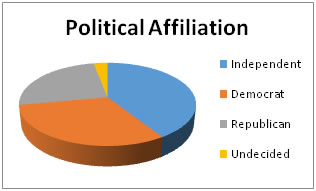One Voice
Human Rights/Corporate Rights – “Power will never surrender without demand”.
Richard Freeman, an economist at Harvard who specializes in inequality, unions and employment patterns, wrote this email: “I am in 100 percent agreement with Piketty and would add that much of labor inequality comes because high earners got paid through stock options and capital ownership.”
 Freeman and two colleagues, Joseph Blasi and Douglas Kruse, professors at the School of Labor and Management Relations at Rutgers, contend in their 2013 book, “The Citizen’s Share: Putting Ownership Back into Democracy,” that they have an alternative to a global wealth tax. They argue that:“The way forward is to reform the structure of American business so that workers can supplement their wages with significant capital ownership stakes and meaningful capital income and profit shares.”
Freeman and two colleagues, Joseph Blasi and Douglas Kruse, professors at the School of Labor and Management Relations at Rutgers, contend in their 2013 book, “The Citizen’s Share: Putting Ownership Back into Democracy,” that they have an alternative to a global wealth tax. They argue that:“The way forward is to reform the structure of American business so that workers can supplement their wages with significant capital ownership stakes and meaningful capital income and profit shares.”
In other words, let’s turn everyone into a capitalist.
This chart shows what most people would take for granted as a typical byproduct of the democratic process. Is it just a mere difference of opinion or is it something deeper more “undemocratic?
The simple truth is whether you’re democrat, republican or libertarian you most likely believe in the basic concept of a democracy, which is government for and by the people.
Consider this poll asking whether or not you agree to favor background checks when purchasing a firearm:
| Republicans | Democrats | Independants | Gun-Owners |
| 84% | 92% | 81% | 84% |
As you can see there is no divide here. Almost everyone, regardless of political affiliation, even gun owners themselves, agree on the issue of background checks being a reasonable requirement for gun ownership.
Despite the gridlock in our government and political arena, there are many other issues that Americans agree on:
Equal opportunity to succeed
Importance of higher education for everyone
Birth control morally acceptable
The right and duty to vote
Global climate change is an issue we need to address
You may not agree with these few issues above, but the facts remain; we have so much more in common than what our political system would have us believe.
Blasi, Freeman and Kruse go on:
“In a country where we have no wealthy incorporated companies of merchants, where we have no nobles with great estates, permanent in the family line, where we have no royal prerogative supported by an enormous civil list and numbers of dependents. I say in a country where we have no counterpose to correct its influence or control its enormities by their own, shall we grant such an institution? Shall we give such an artificial spring to concentrated wealth?
By no means.”
Representative William Findley, the General Assembly of Pennsylvania 1786.
It did not make sense to Findley that the bank would have a permanent charter whereas Pennsylvania’s governments changed annually. The bank would become a “permanent society, congregated by special privilege,” that would control the most profitable foreign markets and produce a corporate aristocracy harmful to democracy. He concluded his speech by stating that the legislature literally did not even have the power to give the bank a charter: “The laws are a common property. The legislatures are entrusted with the distribution of them. This house will not, this house has no right, no constitutional power to give monopolies of legal privilege, to bestow unequal portions of our common inheritance on favorites.”
“This banking debate resonates with today’s economic problems. The revolving door between Wall Street and Washington, DC, in which politicians appoint bankers to top jobs who then return to the private financial sector after public service, fits Findley’s fears of how concentrated wealth could create a privileged elite. The term “crony capitalism” did not exist in his day, but that was the underlying issue. The Bank of North America mainly served a very small group of wealthy individuals, who could abuse their power.”
Democracy vs Corporation
de·moc·ra·cy – an organization or group controlled by its members.
cap·i·tal·ism – an economic and political system in which a country’s trade and industry are controlled by private owners for profit, rather than by the state.
Government – Corporation
Both government and corporations are controlled by people. So where lays the problem?
In a democracy people, even the majority of people don’t always get what they want. I think it’s safe to say we all want everyone to be free from harm and exploitation. And what again should we agree?
- A democratic government is controlled by the people
- A capitalist society is controlled by private owners
The only way to stop the incessant tsunami towards economic and cultural collapse is a movement of like minded individuals cooperating on divergent economic fronts to acquire capital ownership stakes, which in turn will generate meaningful capital income and profit shares. As aptly put by Freeman Blasi and Kruse: “let’s turn everyone into a capitalist.”
